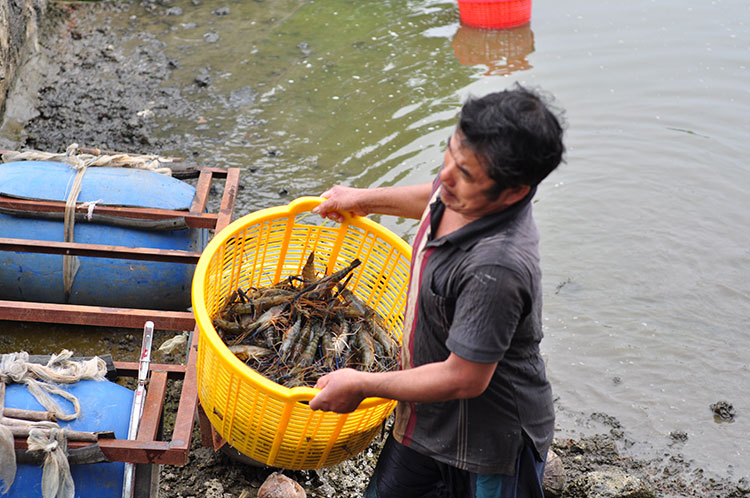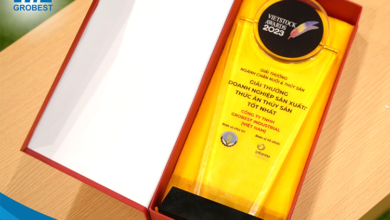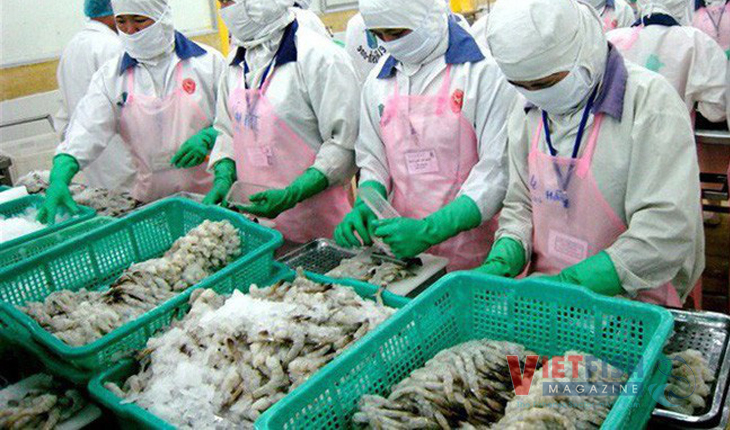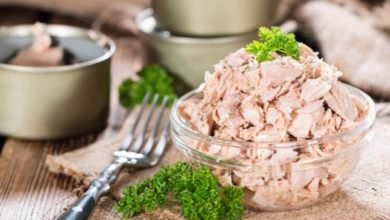Ba Ria -Vung Tau – Unfavorable weather forces shrimp farmers to empty ponds
Shrimp farmers in Ba Ria - Vung Tau have been forced to temporarily empty their ponds and forgo the farming season due to harsh weather conditions.
May to June is typically the busiest time of year for shrimp farming in the province. However, this year, many farmers have had to leave their ponds idle for extended periods as the region has been battered by frequent, unseasonal rains over the past two weeks.

Huynh Van Thuyet, Director of Cho Ben Cooperative in Long Dat District, shared that since the Lunar New Year, erratic weather has wiped out 100% of the juvenile shrimp in the first stocking, resulting in losses of over 1 billion VND. The second stocking was slightly less affected, but losses still reached around 60%. Meanwhile, diseases such as white feces syndrome and white spot disease are spreading widely among whiteleg shrimp, contributing to the high mortality rates.
“Our cooperative’s ponds have been idle for over a month to allow for cleaning and disinfection. We only resumed stocking shrimp about a week ago and are monitoring the situation closely. We can only hope we don’t suffer the same losses again,” Thuyet said.
Many whiteleg shrimp farms near the Cho Ben Cooperative are facing similar challenges. Erratic weather, alternating between heavy rain and intense sun, has severely affected shrimp fry, leading to mass mortality. Farmers have suffered major losses, with some reporting deficits of 500 million to over 1 billion VND.
Recently, the Manh Cuong 1 and Manh Cuong 2 farms stocked over 1 million post-larvae for their March crop. However, within just 30 days, nearly the entire stock perished due to infection by Enterocytozoon hepatopenaei (EHP), a microsporidian parasite that causes slow growth, stunted development, and sharply reduced yields.
In Ba Ria City, the Quyet Thang Agricultural Cooperative has also suspended farming operations. A combination of scorching heat and unseasonal rains has caused constant pond condition fluctuations, leading to thermal shock and weakened immune systems in the shrimp.
Nguyen Kim Chuyen, Director of the Cooperative, said that while shrimp stocking is currently on hold, the team is using this time to repair and upgrade pond systems and thoroughly clean the facilities. “We’re drying the ponds or treating them with lime and probiotics to eliminate bacteria and pathogens, including gut-related diseases, EHP, acute hepatopancreatic necrosis disease (AHPND), and white spot syndrome. We hope to resume operations smoothly by June,” Chuyen said.
Similarly, many shrimp farmers in Bà Rịa–Vũng Tàu have paused stocking, waiting until late June or July, when more stable weather and the rainy season help regulate water conditions. This period typically sees key environmental factors, temperature, salinity, and dissolved oxygen, returning to balance, creating more favorable conditions for shrimp growth.
According to the provincial Department of Agriculture and Environment, Bà Rịa–Vũng Tàu recorded 2,891 hectares of shrimp farming in the first four months of 2025, with an estimated output of 2,915 tons. However, environmental indicators in many areas exceeded safe thresholds: wide pH fluctuations, low alkalinity, and elevated levels of toxic compounds such as NH₄-N and NO₂-N have created ideal conditions for pathogen outbreaks.
In reality, suspending shrimp farming activities, commonly known as “pond resting”, is not only prompted by weather conditions or disease outbreaks, but also serves as a proactive strategy for farmers. In response, local authorities have implemented various measures to support them. Livestock and Crop Production Stations across different localities have been assigned to strengthen environmental monitoring and issue early warnings about potential disease risks.
In Bà Rịa – Vũng Tàu province, aquaculture covers approximately 5,700 hectares, with whiteleg shrimp farming accounting for about 50% of that area. Mr. Đoàn Văn Nam from the Fisheries and Fisheries Surveillance Sub-Department of Bà Rịa – Vũng Tàu advises: “Farmers should purchase shrimp fry from reputable sources with clear origins and avoid unverified stock to better manage disease risks. Additionally, it is recommended to supplement shrimp feed with vitamin C and minerals to strengthen their immune systems.”
The provincial Department of Agriculture and Environment is also encouraging the use of shading nets over ponds to minimize the impact of rainwater. In areas with adequate technical capacity, adopting two-phase farming models or biofloc systems is recommended to enhance disease control.
VFM






